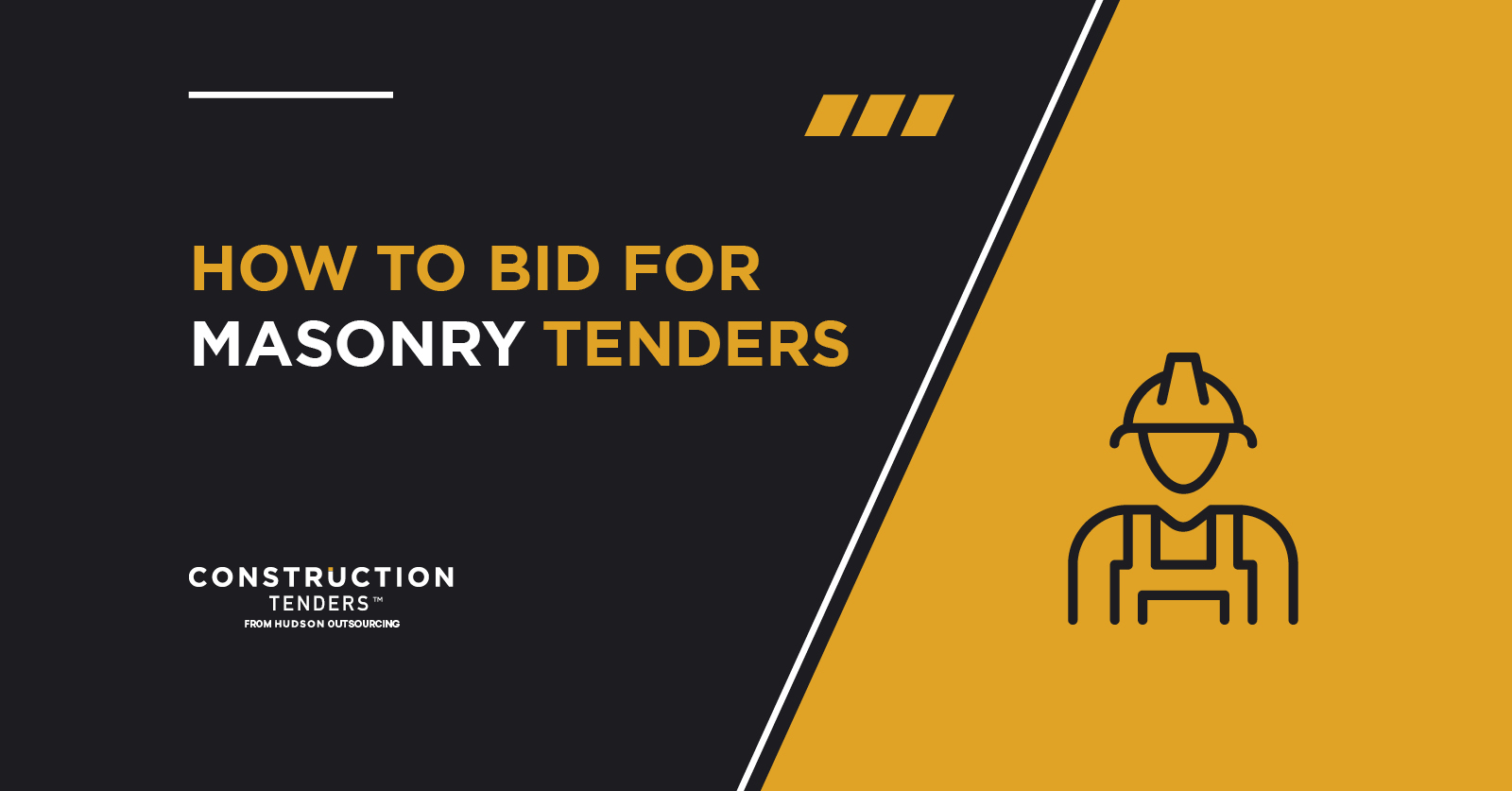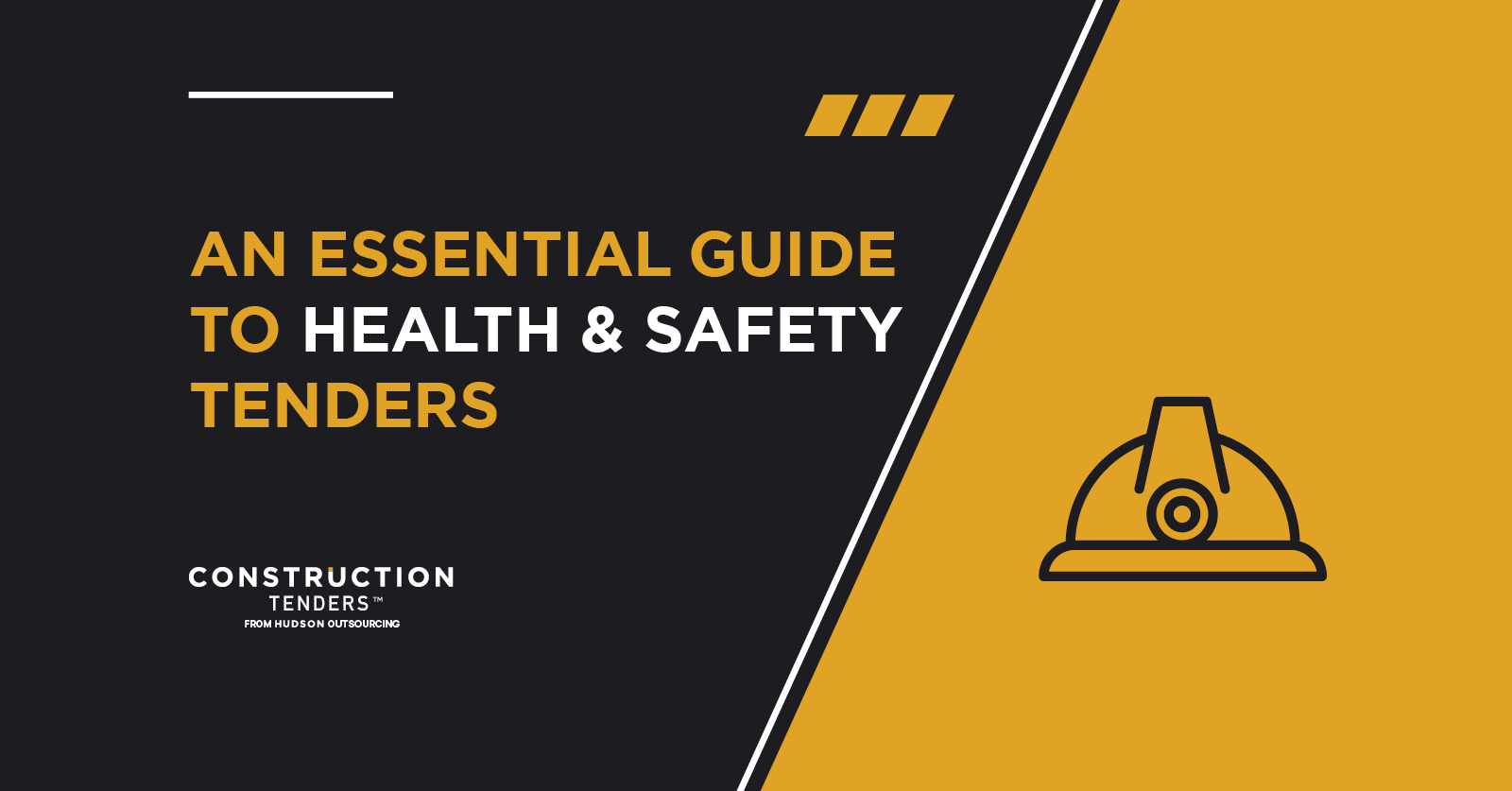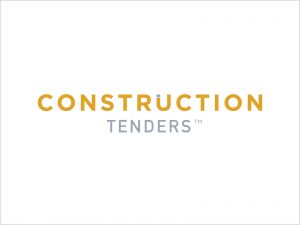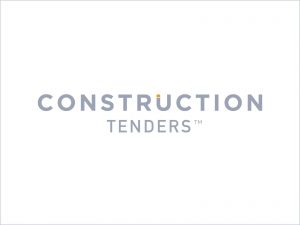Building Maintenance Contracts for Tender
There’s a sure-fire chance that if you live, work or own a building of some kind that it will need maintenance to some degree, regardless of whether your building is an old property in need of a major refurbishment or a brand-new build.
Fortunately, the public sector does too – leading to thousands of building maintenance contracts for tender going live each day. This is where you come in.
So, what can we do?
Typical building maintenance contracts for tender will cover, say, a council’s domestic or commercial properties. Both come with their own unique considerations, which are more than likely going to be reflected across the tender questions.
Councils may put out to tender for the likes of:
Not all public sector buyers are the same
Public sector procurement may follow the same guidelines – namely the Public Contracts Regulations 2015 – however buyers differ, and as such there can be a massive variety of contracts to choose from. Buyers can break different maintenance trades down into individual contracts and tenders or as large, overarching contracts or frameworks.
Larger contracts, usually covering many trades are typically released as frameworks, hereby a proportion of the top scoring tenders will be added to the buyer’s approved suppliers list. Thereafter, they are contacted on a call-off basis, where the top scorer is called first, the second called afterwards and so on.
Larger opportunities
Some larger contracts may be split into lots, in which you can bid for the separate services under the same contract. This is often great news for smaller firms or those who simply wish to cherry pick the services they wish to deliver – as such, you could opt to deliver gas servicing and painting and decorating for a local council as part of a much larger maintenance package.
Make sure it’s worth bidding for
Once you’ve found an opportunity that you’re interested in, it’s time to make a bid/no bid decision. Important things to consider when you’re interested in a bidding maintenance contract for tender is whether you:
- Meet the minimum financial criteria and stability to bid
- Can feasibly deliver the maintenance across the geographical area
- Satisfy any other minimum eligibility criteria
Sometimes, buyers will require as a minimum, certain accreditations to be held by yourselves or your subcontractors to be eligible to bid – this has included the likes of GasSafe, NICEIC and even ISO accreditations, such as ISO 9001:2015 and ISO 14001:2015.
Building construction contracts for tender
Most tenders in the construction industry will name the form of contract under which you will operate within the tender documentation. Hitting the ‘control’ and ‘f’ keys will help you to discover which one will most likely be used.
Upon successfully tendering for a building construction contract, you will have to sign it and adhere to it. It’s important therefore to have a working knowledge of the types of contract you may have to undertake.
Contract notices
A contract notice provides information about building construction contracts for tender. In short, this is an advertisement for current tenders and therefore upcoming contracts. These are published on OJEU, and you can utilise the Government’s Contracts Finder tool to search for building construction contracts for tender. This is one of hundreds of websites where notices are published. Details often include:
- Type of contract
- Approximate/estimated value
- Contract duration
- Any lot-specific information.
Similarly, a prior information notice (PIN) flags up any upcoming procurement runs. PINs let potential bidders know that they can expect the release of a tender typically within the coming 12 months. This process is optional – it merely serves to accelerate the tender timetables, as bidders have had advance notice of a tender’s release.
It’s worth keeping an eye on contract notices and PINs so that you can be sure you’re ready for when desirable building construction contracts for tender are released.
Standard forms of contract
Everyone knows a contract sets out the relationship and expectations between two parties. Critically, building construction contracts for tender outline the allocation of risk and price. Contracts will make the most sense when read alongside certain tender documents such as terms and conditions, and/or the specification.
We have listed here the most popular building construction contracts for tender within the UK:
-
JCT (The Joint Contracts Tribunal)
JCT forms of contract are the most commonly found within the sector. It is a limited company which produces contracts and other supporting documentation, such as sub-contracts and forms of tender. JCT contracts cover the construction of all buildings, including but not limited to:
- Standard and intermediate building contracts
- Minor and major works contracts
- Design and build contracts.
-
Chartered Institute of Building (CIOB)
The CIOB developed the Complex Projects Contract in 2013, but it was renamed to the Time and Cost Management Contract in 2015. Its primary aim is to organise time management in complex construction and engineering projects. Buyers may use this contract because it caters for BIM. This contract form entails close collaboration between multiple parties involved in the project. This is because of the contract’s aim to mitigate time and cost risk. Ultimately, this contract pushes for early completions of complex projects.
-
FIDIC (Fédération Internationale des Ingénieurs-Conseil)
This is a membership organisation with a suite of contracts at its disposal for works in:
- Construction
- Design and build
- Turnkey projects.
The organisation’s primary aim is to promote the strategic goals of the construction industry. The contract forms here are internationally recognised, as you may have guessed from the French name.
-
NEC (The New Engineering Contract)
NEC4, the latest version of the NEC suite of contracts, became available in June 2017. NEC contracts have been available for over 20 years, and thus NEC4 is the culmination of feedback from the use of the contracts in practice. The NEC4 contract aims to streamline:
- Contract administration
- Risk management
- Key terminology.
There are various changes between the NEC3 and the NEC4 contracts. These changes all have the purpose of promoting and facilitating collaboration between all parties.
There will be other forms of building construction contracts for tender, but these are far less commonly used.
Bespoke contracts
Some companies, usually private sector organisations, will use bespoke contracts which are written specifically for the project at hand. These are riskier than signing standard forms of contract and tend not to cover as many eventualities. As the contractor, you normally have little choice about the contract you sign. As such, it’s worth considering which formats of building construction contracts for tender you are willing to bid for.
CIC BIM Protocol
CIC BIM Protocol is an additional legal agreement that can be added to construction contracts, suitable for all Level 2 BIM projects. Its main purpose is to establish obligations, limitations and liabilities which support Level 2 BIM construction projects.
Components
But which documents might these types of contracts contain? Possibly all, or a combination of, the following:
- Article of agreement and conditions of contract (what needs completing)
- Drawings
- Bills of quantities
- Schedules of work
- Specification(s)
- Adjustments schedule (any changes agreed following the tender process)
- An information release schedule
- A model enabling amendment and/or BIM protocol (for BIM projects).
So, we can bid – what now?
Tender exercises of this nature will either follow the open or closed procedure. The former allows you to jump straight into the tender questions, often submitted with a pricing schedule and a selection questionnaire.
The latter however follows a strict two-stage process, in which potential bidders are vetted through a pre-qualification or selection questionnaire, which evaluates you on a basis of what you have done previously that is relevant to the contract you’re bidding for.
These are usually marked as pass/fail, rather than the scoring system in the latter invitation to tender (ITT) exercise.
The PAS-91
Being an area of construction, it’s entirely possible that the pre-qualification stage for a maintenance contract could entail the completion of a PAS-91, or “Publicly Available Specification 91”. These are becoming increasingly common in the construction sector, working as standardised, elongated PQQ.
The workloads associated with completing PAS-91s will vary depending on the accreditations you hold, which in turn will exempt you from completing certain sections. Should you be fortunate to hold Constructionline – particularly gold level – you should be in good stead to avoid most sections. See our lowdown on PAS-91s here.
The ITT exercise
Should you pass the selection questionnaire stage, it’s now a matter of explaining and selling your approach to delivering maintenance across the building(s) the client requires. As is standard practice for writing any bid, first make sure you have:
- Read the specification, and as such understand what the client needs you to deliver on
- Broken down each question and cross-referenced these with the specification
- Have the time and resources to complete the questions fully.
The specification is often a good idea as to what the client is looking for in each response, and as such it’s worth breaking down your responses to cover the relevant information in the specification to cover as many marks as possible.
Themes and why…
Not only that, but the specification – and indeed the question sets – is a great way to break down the theme of a bid. The ‘theme’ of a bid, in this case, hints to certain areas where buyers may have had issues in the past. As such may award or prefer tenders that reference this point – we’re all human after all. Simple giveaways of themes can include:
- Multiple questions regarding a specific subject (e.g. out of hours service)
- Disproportionate weighting to certain sections
- Extensive coverage in the specification.
By ascertaining the theme of the bid, you can then start to identify how you can appeal to the buyer’s needs and create a positive impression – a happy evaluator is likely to be a more generous one.
You should consider:
Most buyers will want to understand your approach to delivering your services and their requirements. As such, you may have to respond to questions asking about:
- Your proposed resourcing – qualifications, experience and training of staff
- Your proposed approach and how this complies with the specification and/or industry regulations
- Mobilisation – how you intend to ensure that the contract is ready to commence on the buyer’s stipulated date
- How you comply with certain legislation/regulations
- Quality assurance – such as minimising defects
- How you minimise environmental impacts
- Health and safety and/or risk management
- Social value – how you can contribute to the social and economic wellbeing of the local community.
As part of these method statements, you may be asked to (or choose to) submit supporting documentation. This could be policies, procedures, accreditations, or CVs for your staff members. If there is a question about resources, it’s possible you’ll also have to attach copies of staff’s qualifications/certifications to prove their competency.
Tender documentation may often state the importance of the claims you make in your method statements. Some or all of the content could be inserted into the contract and therefore form legally binding commitments. It’s important to bear this in mind when creating your responses. However, this shouldn’t mean that you scrimp on demonstrating your ability to provide added value and deliver the services.
You will have to complete a pricing schedule as part of your tender response. Make sure you price your services competitively without making a loss.
Those releasing building construction contracts for tender will be similar to other public procurement buyers. Organisations could include:
- Councils
- Housing associations
- NHS Trusts or CCGs.
Most buyers will have preferred contract forms – so for example, Durham County Council may only use NEC4 contracts. It might be worth considering which contract forms buyers use and bid for those with which you already have experience where possible.
Managing your resources
For any construction contract – there is a very high chance a buyer is going to want to you to demonstrate how you manage your resources. Questions can vary and can cover the likes of:
- Staff allocation
- Managing planned preventative maintenance schedules
- Contract delivery teams
- Resources and managing across the local area.
It’s best here, if you have one, to talk about any workflow management software you may have, which allows you to allocate staff based on certain criteria, such as proximity and skillset. Always consider also how you prioritise certain jobs, and the policies and procedures in place to ensure continuity in the event of peaks and troughs in workload.
Buyers will be looking for organisations who can demonstrate their ability to allocate resources effectively and efficiently, with the systems in place to manage multiple properties (in the case of social housing contracts), across difficult geography.
Health and safety
You are likely to score higher marks with formally recognised health and safety accreditations or management systems, for example, ISO 45001:2018, OHSAS 18001:2007, CHAS or SafeContractor. A formally recognised body will instil confidence in a buyer, and as such lead to higher marks.
Regardless, you are often required to answer health and safety questions regarding the likes of:
- Operative health and safety competency and training
- Risk assessments, method statements and safe systems of work
- Ensuring staff and resident/building user safety out of hours
- Compliance with statutory requirements and legislation, and how this is maintained.
Health and safety responses follow best practice, and as such reference to ISO 45001:2018 standards, for example, will be a good place to start. Areas of recent interest, especially following the introduction of the said ISO include considering employee mental health and a culture of behavioural health and safety across an organisation – not just a top-down approach.
Staff competence
Buyers, naturally, will want reassurance that the engineers conducting PPM for their gas boilers, for example, are being serviced by competent staff, recognised and registered with appropriate bodies, such as GasSafe. As such, training and competence questions may ask how your organisation:
- Monitors and records staff training and accreditations
- Ensures compliance with the latest legislation and best practice
- Promotes staff retention and development.
Appointment process
Another area of consideration may be your approach to managing appointments. This could easily link to questions regarding resource management, with typical question areas including:
- How do you monitor appointment times?
- How do you mitigate no-access appointment?
- How do we enable flexibility regarding appointments, around the needs of the customer?
The best approach here is to consider how you put the residents/building users in control of the appointment process, in a manner that is most convenient for them. Customer service is something that clients value, and even some statistics to back up your responses, such as customer satisfaction rates, will be good to put down here.
How can we help?
If you want to take out all of the hard work of sourcing building maintenance contracts for tender, why don’t you leave it to us by signing up to Construction Tenders.
Construction Tenders is your one-stop-shop for all your tendering needs. Updated by our opportunity trackers daily, the portal will allow you to filter down through the hundreds of tenders uploaded each day to identify the ones most relevant to your business, with refining fields from budget, to scope, to location.
Below are some building maintenance contracts sourced on our portal:
General Building Maintenance Work
Nottingham City Council- East Midlands- Budget: Undisclosed
Building Maintenance and Cleaning Services
Herefordshire Council- West Midlands- Budget: Undisclosed
Building Maintenance of Council Owned Buildings
Copeland Borough Council- North West- Budget: Undisclosed
Maintenance of Building Maintenance Units, Roof Top Safety and Fall Arrest Systems
Procurement and Logistics Service- Northern Ireland- Budget: Undisclosed
Provision of a General Building Maintenance Service
Northumbria Police- North East- Budget: £250,000
Get in Touch with Construction Tenders:
Sign up to Construction Tenders today and receive a daily construction leads bulletin straight to your inbox, containing all relevant small construction tenders uploaded that day.
This includes the following:
Further Support
Alternatively, if you’ve found an opportunity already, why not check out our Tender Writing services, in which we can work with you and produce a winning submission from scratch. If you’ve already written your construction bid and would like a second pair of eyes, try our Tender Mentor service.
Contact us today to see how we can help you grow your business.
















